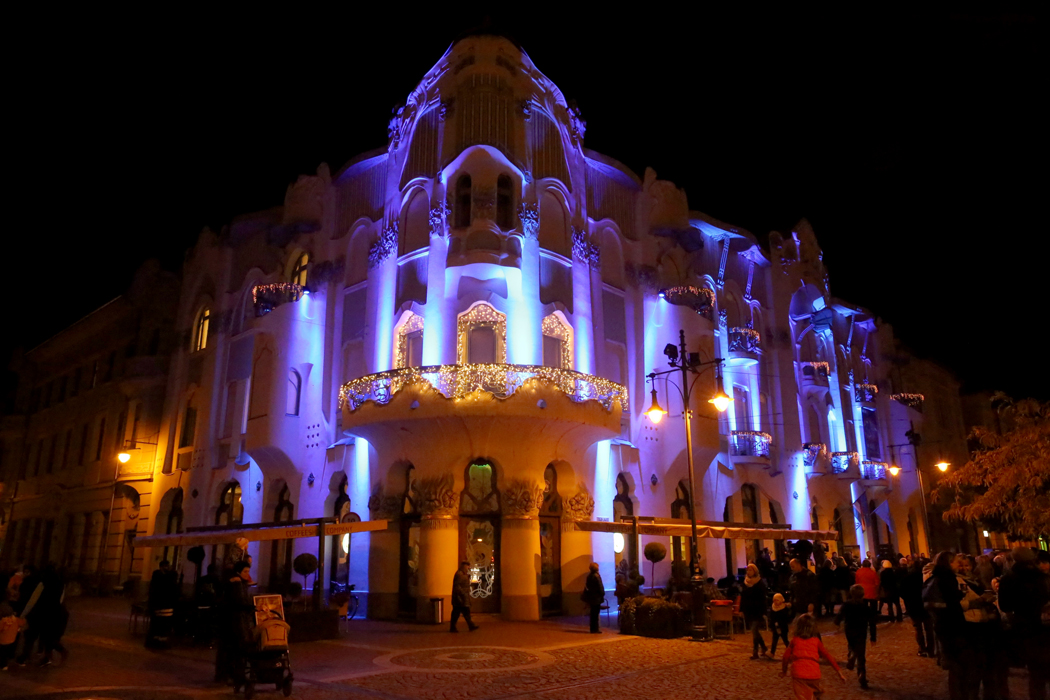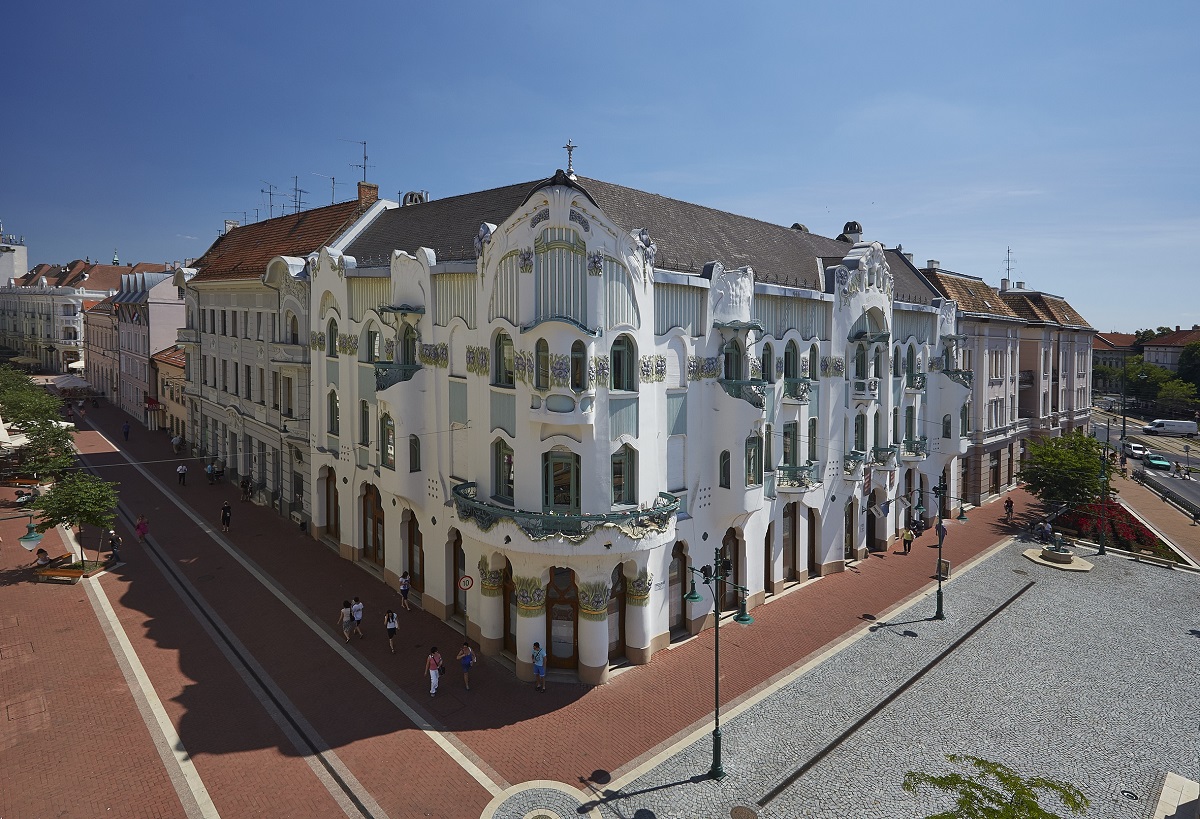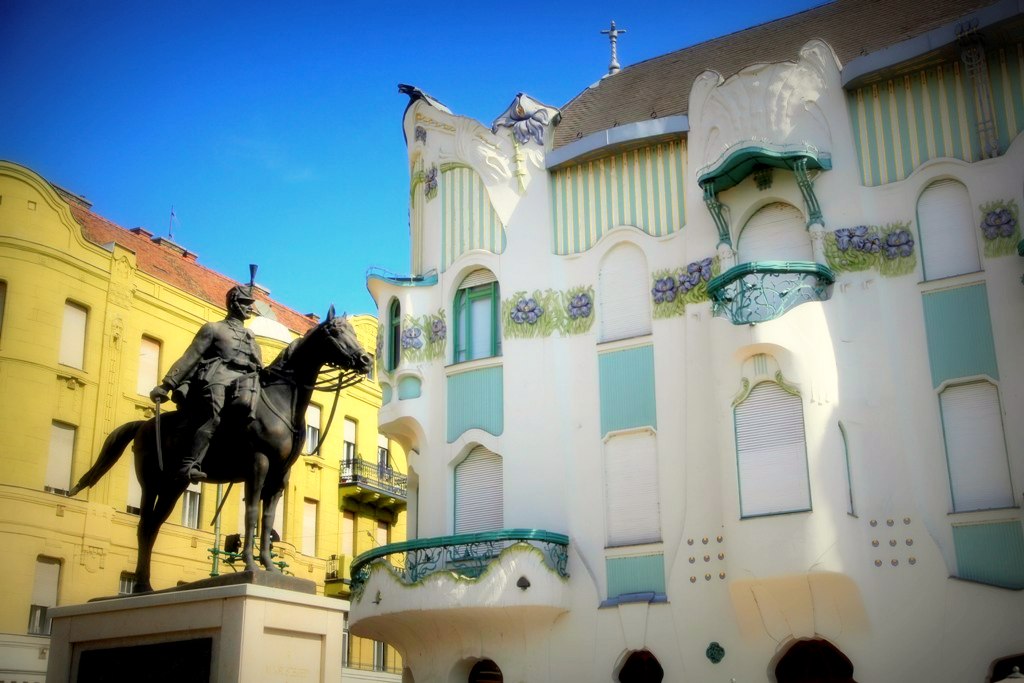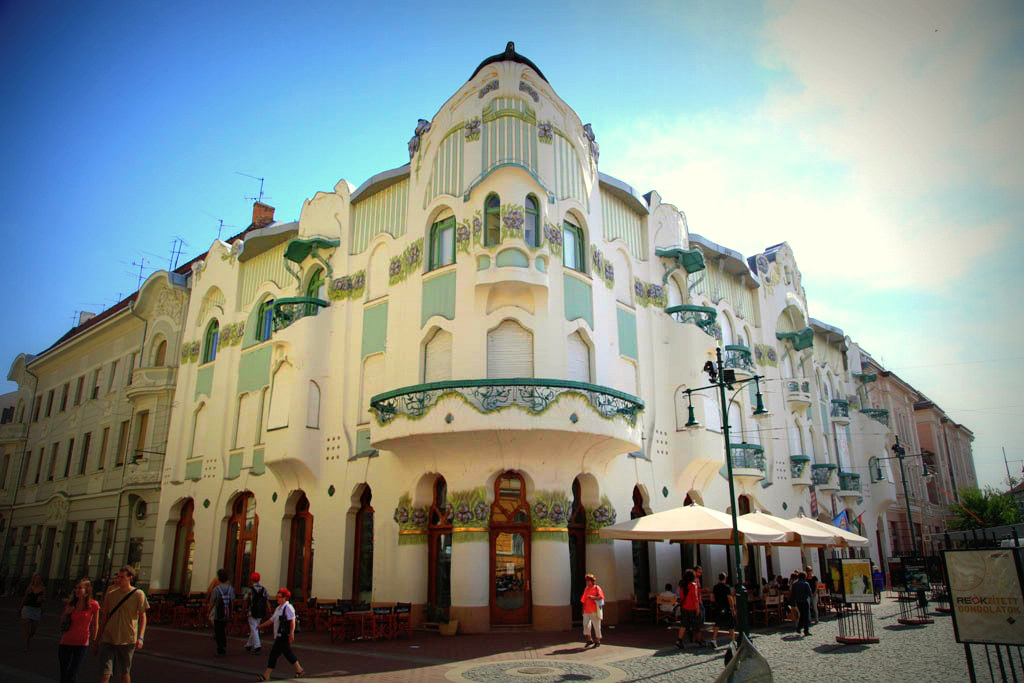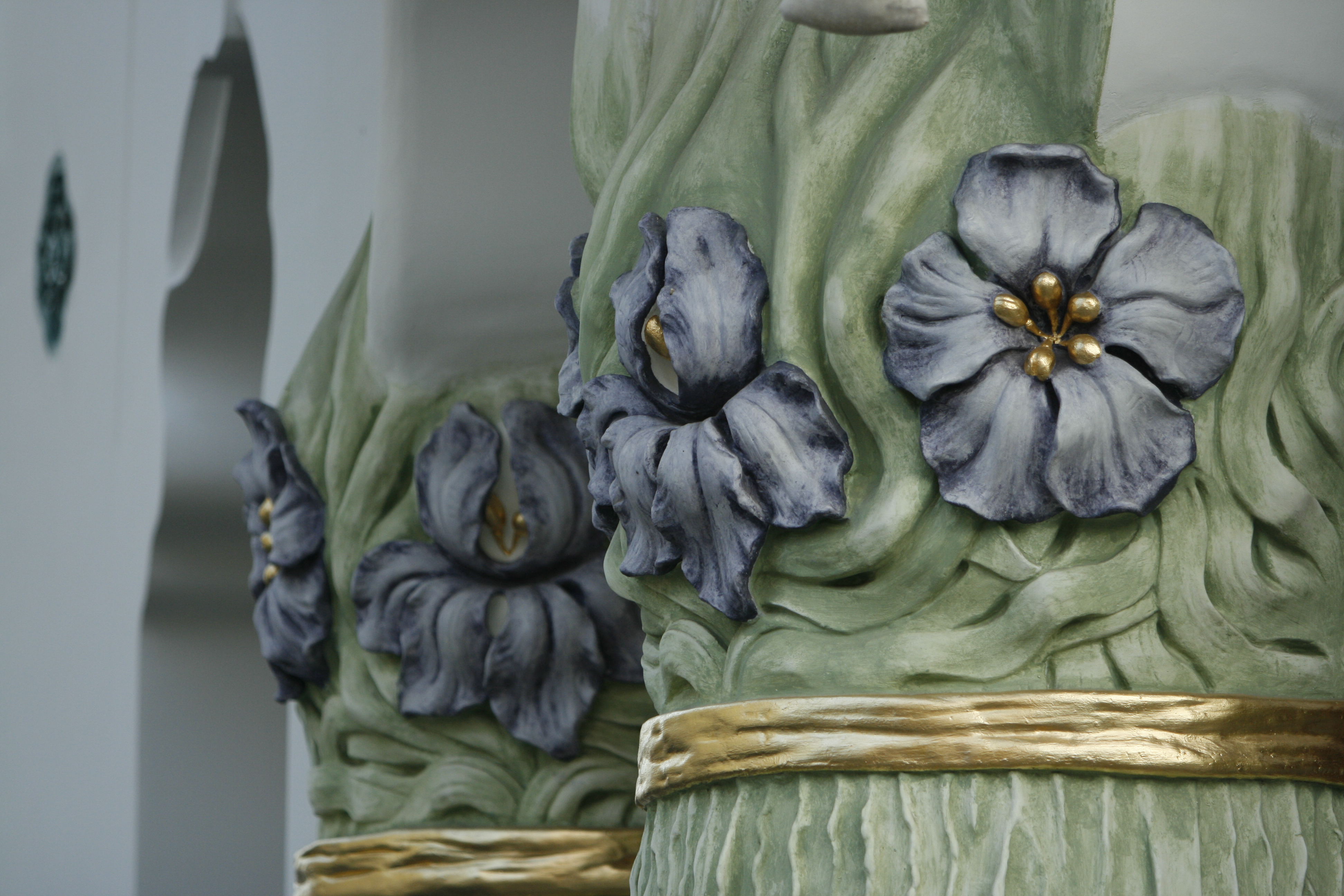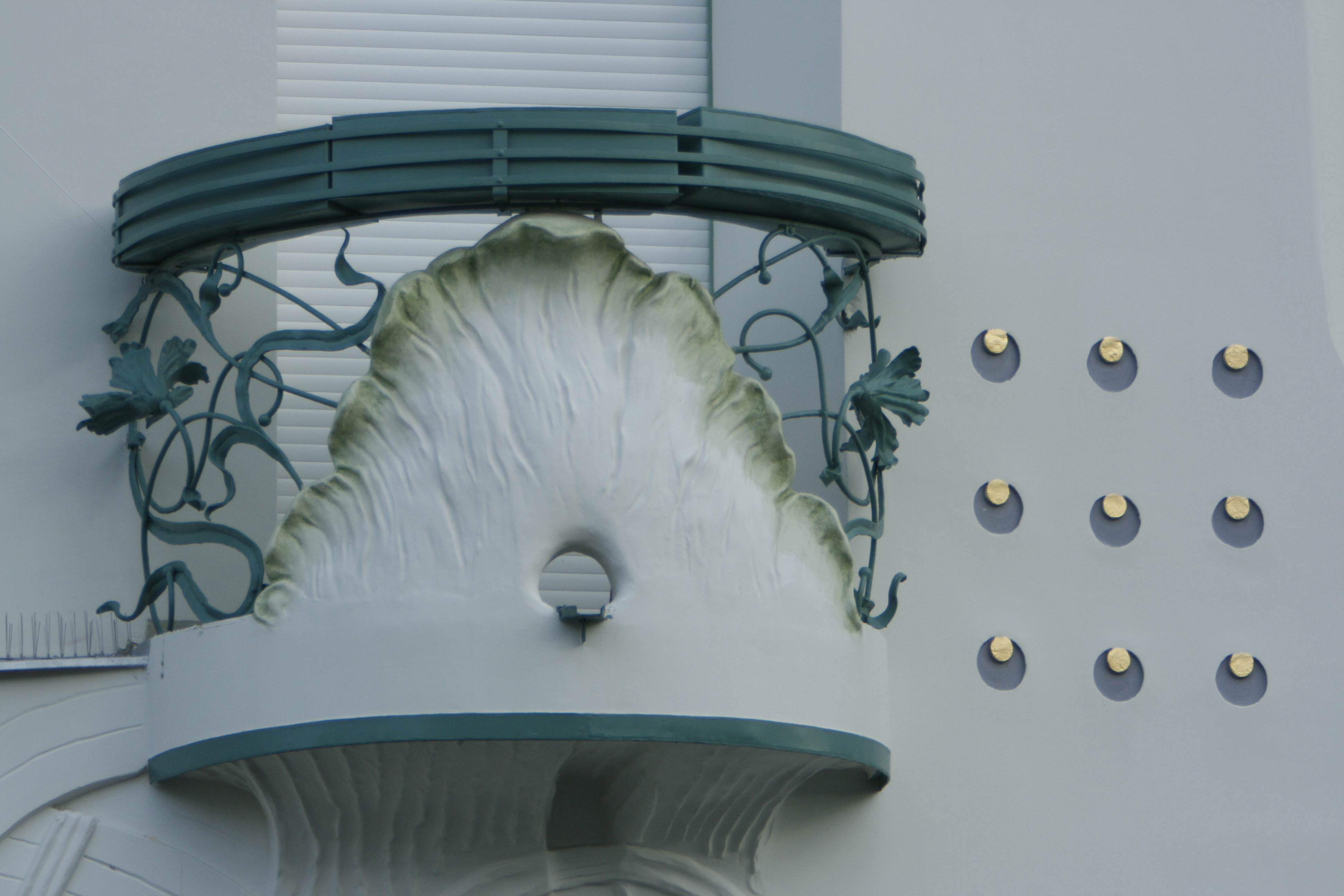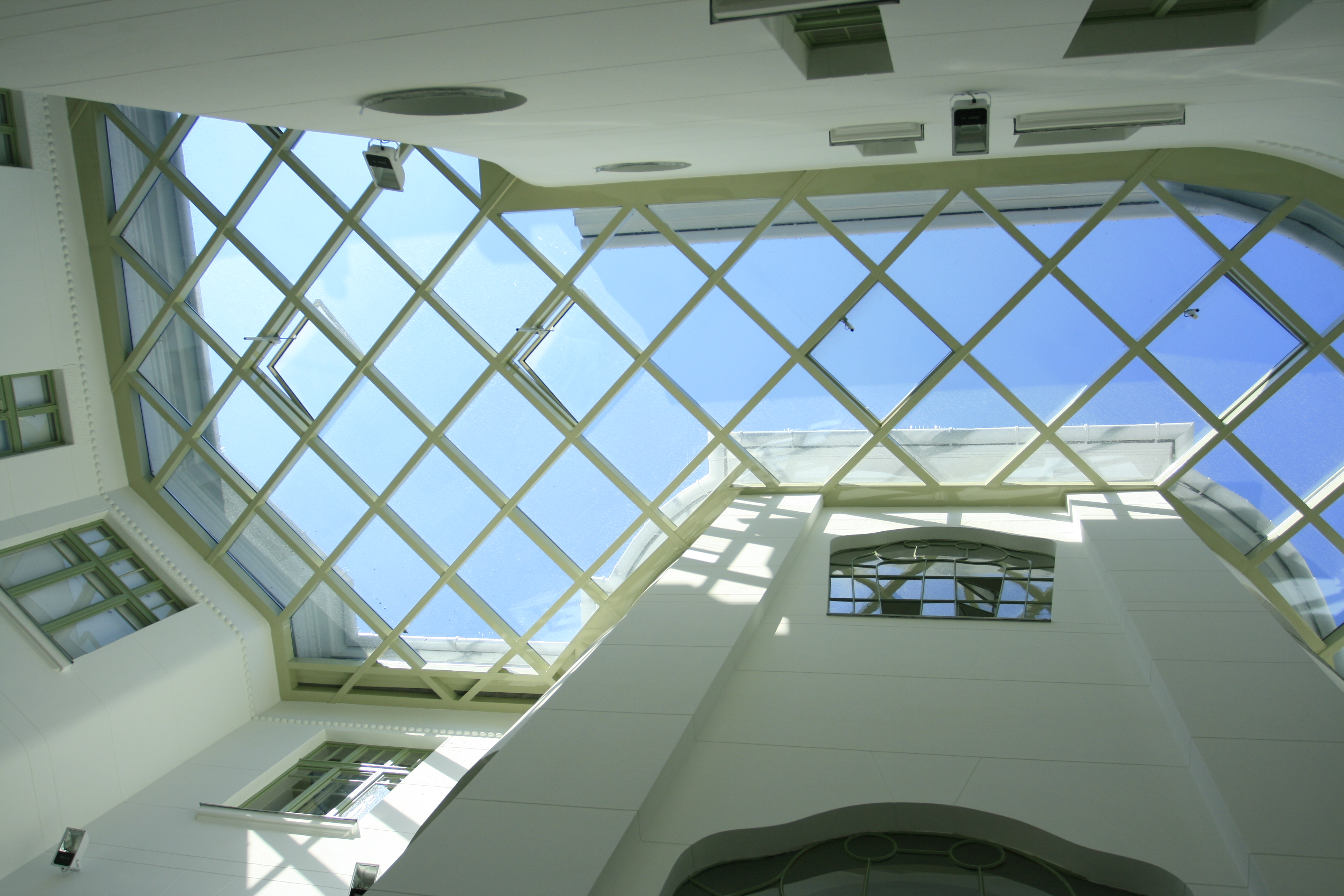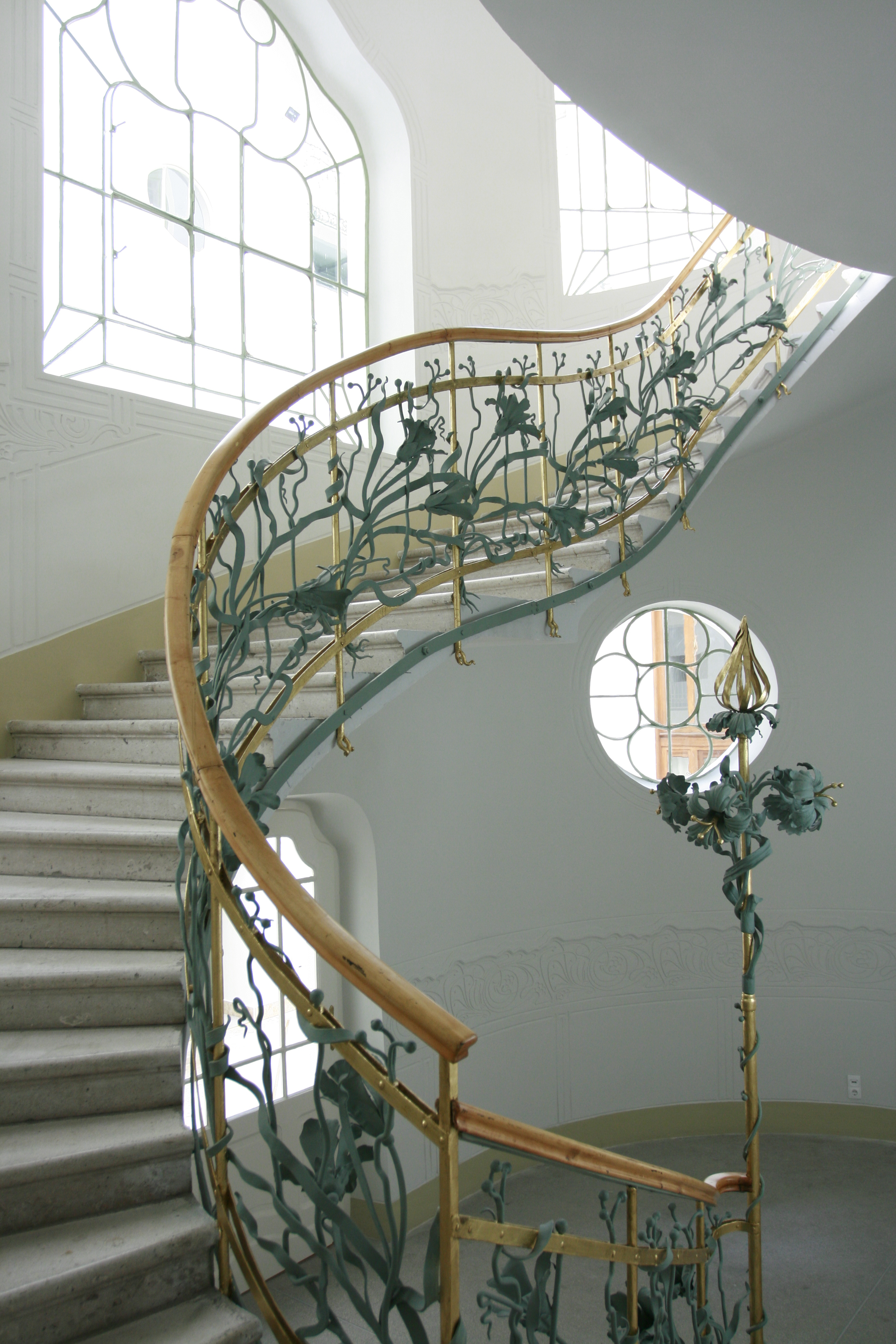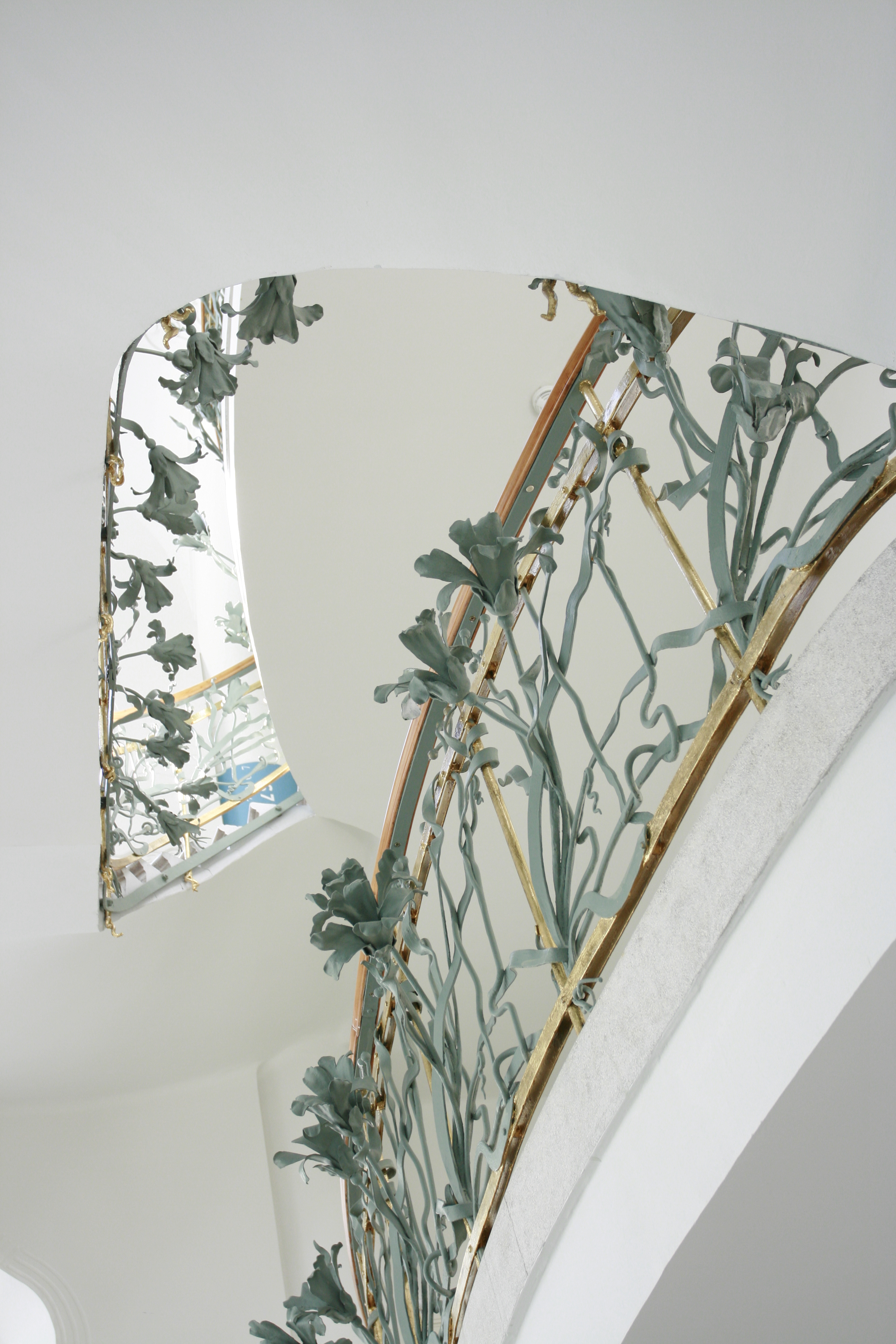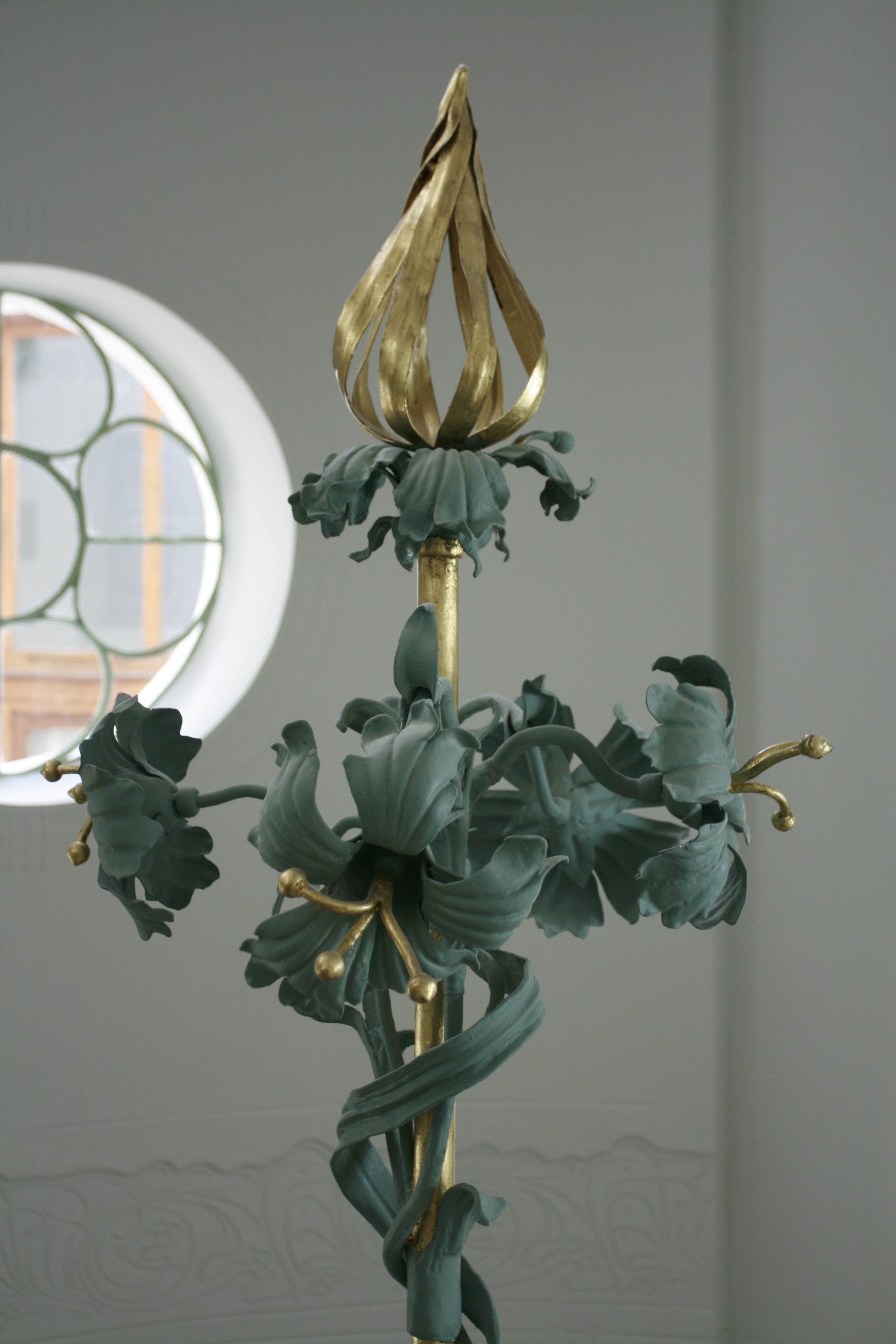The Reök Palace is the masterpiece of Magyar Ede, a special expression of the floral art nouveau style. The unique architectural value, among buildings of a similar style, is also a masterpiece in European comparison. Its designer, with refined taste, dreamed up the water and plant world, reflecting the profession of the builder, water engineering engineer Iván Reök, into architectural forms. The entire facade is made with sculptural tools, so it looks like a huge relief. There is no trace of the usual architectural divisions, here a completely new architectural work was born, without domestic precedents in all respects, related to Belgian and French trends.
Lilies, acanthus leaves and flowers inspired by the aquatic world have almost grown together with the structure of the building. The building exudes the tranquility and diversity of a peaceful, quiet lakeside. The gently undulating plasticity of the facade obeys the specific form of the plant ornamentation. The doors and windows of various shapes, the closed and open balconies also fit into this wavy, rounded world. The play of light that changes with the course of the day produces special effects on the facade, on which all forms blend into the wall surfaces with gentle obedience. No sharp corners, ledges or anything to disturb this majestic game anywhere. If it does, then it plays an exceptional role in the view: the tendril-weaving grid of the balconies, the laced tin ornaments of the canopies tame the functionality to the organic world of the building. The entire facade was originally dominated by a deeper bone color, on which rows of open flowers highlighted in a stronger blue color appeared only in the upper tracts, the Attic walls and the stout column capitals.
The rich plastic world of the street facades can be seen in the doorways and staircases, and the Art Nouveau decorations are also typical of the once elegant apartments here. The decorative painting of the corner room on the first floor, the green salon, was restored to its original condition. Inside, we find exquisite wrought iron works by Pál Fekete (1873–1908), who made his masterpieces based on the drawings of Ede Magyar. This magnificent building is now a public institution serving cultural purposes. For this reason, during the most recent building renovation, its interior spaces were significantly changed, and its courtyard was covered with a glass roof.
In the second half of the 20th century, the building underwent several transformations and renovations. After the renovation of the special Art Nouveau palace, which was once intended as a city palace, it shows even more of its inner values. After the ground floor spaces were made public, the upper floors were also given a community function. As a result of the renovation, the city’s public interested in the arts can take possession of another place. The art nouveau city palace opened its doors in August 2007, renovated on its centenary.
The “Reök-palota – Regional All-Arts Center” building, transformed for multifunctional cultural purposes and renovated, among other things, at the request of the city’s art gallery, welcomed those interested with the exhibition “Beauty and Pain” for the first time.
If you happen to be there, don’t just admire this gem from the outside, drop by for a handmade cookie or an exhibition.




